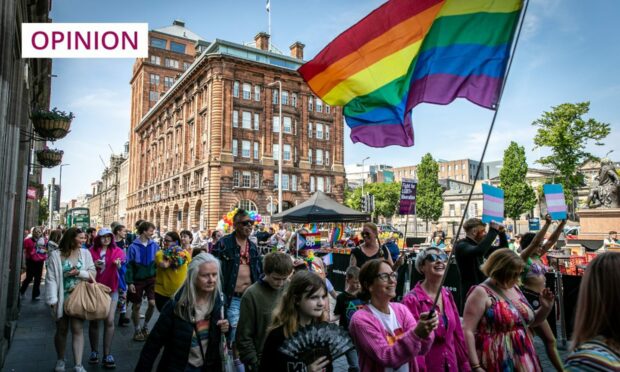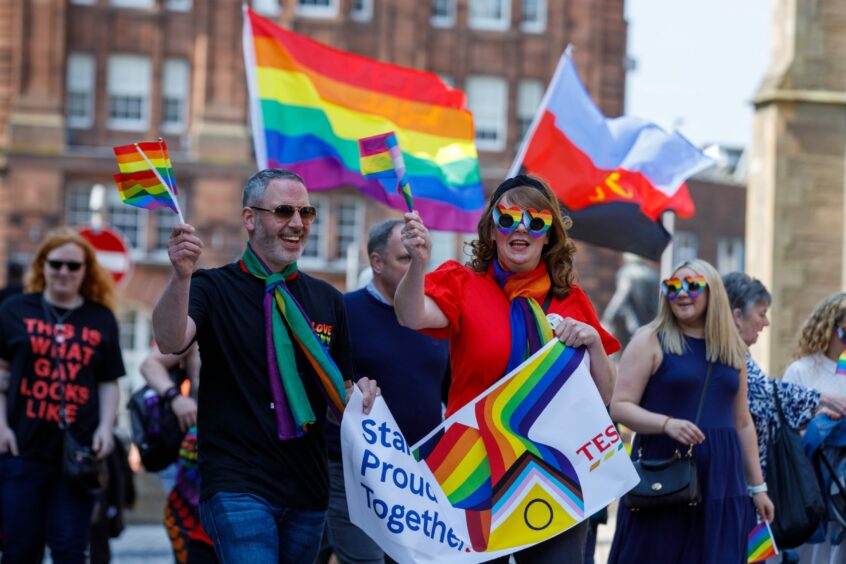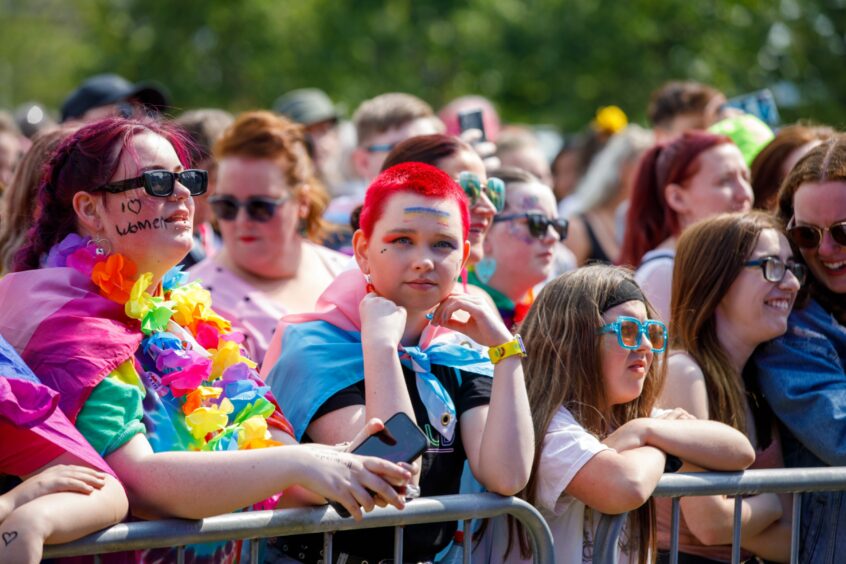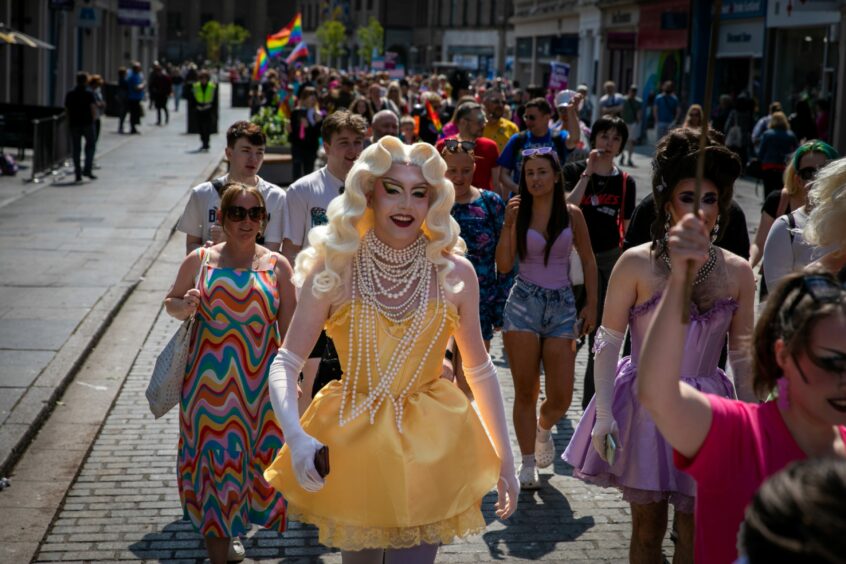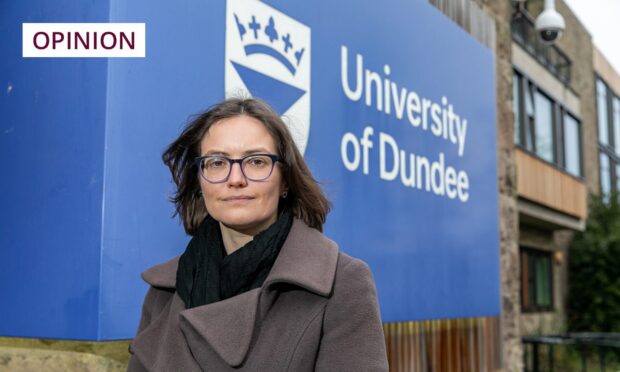Dundee Pride this past weekend was a joyful celebration of the diversity of the LGBTQ+ community. It’s no mystery why the symbol of Pride is a rainbow. And it grows more colourful the more we gain the freedom to be ourselves.
All across the world people come together for Pride marches, fairs, and memorials, honouring our community and the history that led us here.
It’s commonly said that the first Pride was a riot, referring to the events of the police raid on the Stonewall Inn in June 1969.
This spontaneous reaction to police brutality brought together gay, lesbian, bisexual and transgender people in acts of protest and solidarity. And a year later the anniversary was marked by the first Pride marches in Chicago, Los Angeles, New York and San Francisco.
Since then Pride celebrations have taken place all over the world, including here in Dundee, and all across the year.
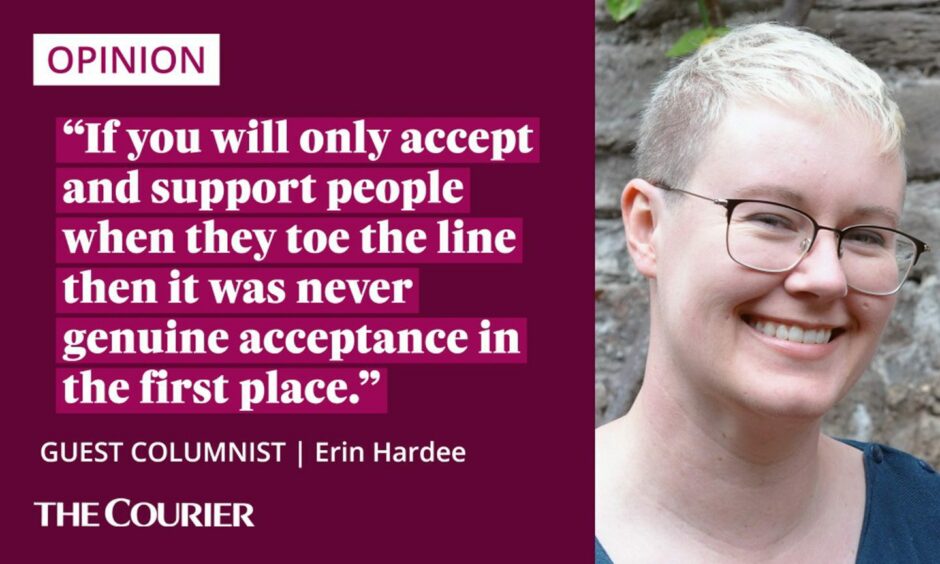
I say this not just to give you a history lesson but to make it clear why Pride is important. It commemorates a watershed moment in LGBTQ+ history and reminds us of the challenges we face.
It would be incredible if those challenges were only in the past, but sadly that is not the case.
Dundee Pride took place against worrying backdrop
Hate crimes aggravated by sexual orientation in Scotland are at an all-time high – 33% of all charges in 2022-23 involved sexual orientation-based prejudice.
This is more than double the number from 10 years ago. And it leads to many LGBTQ+ people feeling unsafe in their surroundings.
A full third of LGBTQ+ young people feel unsupported by the NHS and would hesitate before accessing vital services for fear of prejudice
This includes young transgender people, who must wait up to five years before receiving support, and other young people who feel isolated and distressed by discriminatory comments and ignorance from health professionals.
Reports of the very real struggles of trans people in Westminster were met with eyerolls from elected MPs this week, as if this is any way to respond to the suffering and hardship of constituents.
And of course this is just in the UK.
Across the globe LGBTQ+ people face many barriers and abuse just for living as their authentic selves.
With all this facing us, is it any wonder that we embrace Pride celebrations as a bright spot in a sea of uncertainty and darkness?
These events are both spotlights of solidarity within the community and a chance to proudly declare ourselves to the world. One day a year for us to sing, shout, march, dance, and be unashamedly ourselves.
We should be aiming for more than tolerance
Yes, Pride parades – and LGBTQ+ people – can be unusual and flamboyant and challenging. But why should we be accepted only on the premise that we behave the way that someone else prescribes?
True allyship is not conditional. If you will only accept and support people when they toe the line then it was never genuine acceptance in the first place.
A society that does not embrace the diversity and breadth of its citizens cannot be called tolerant.
And what is tolerant about expecting people to fit into one mould, one way of being?
Expecting people to only be themselves in the privacy of their own homes means expecting them to cut off vital parts of themselves just to get by.
It creates an unequal footing where those that are ‘normal’ are free to talk about their partners, their hobbies, their lives, while those of us who are not are left in the shadows.
Furthermore, why should we aspire only to tolerance when we could be compassionate, loving, and joyful?
Pride is all these things, and more. Come celebrate with us.
Erin Hardee is the co-chair of the University of Dundee’s LGBT+ Staff Network. She teaches at the university and enjoys singing in local choirs and nature photography.
